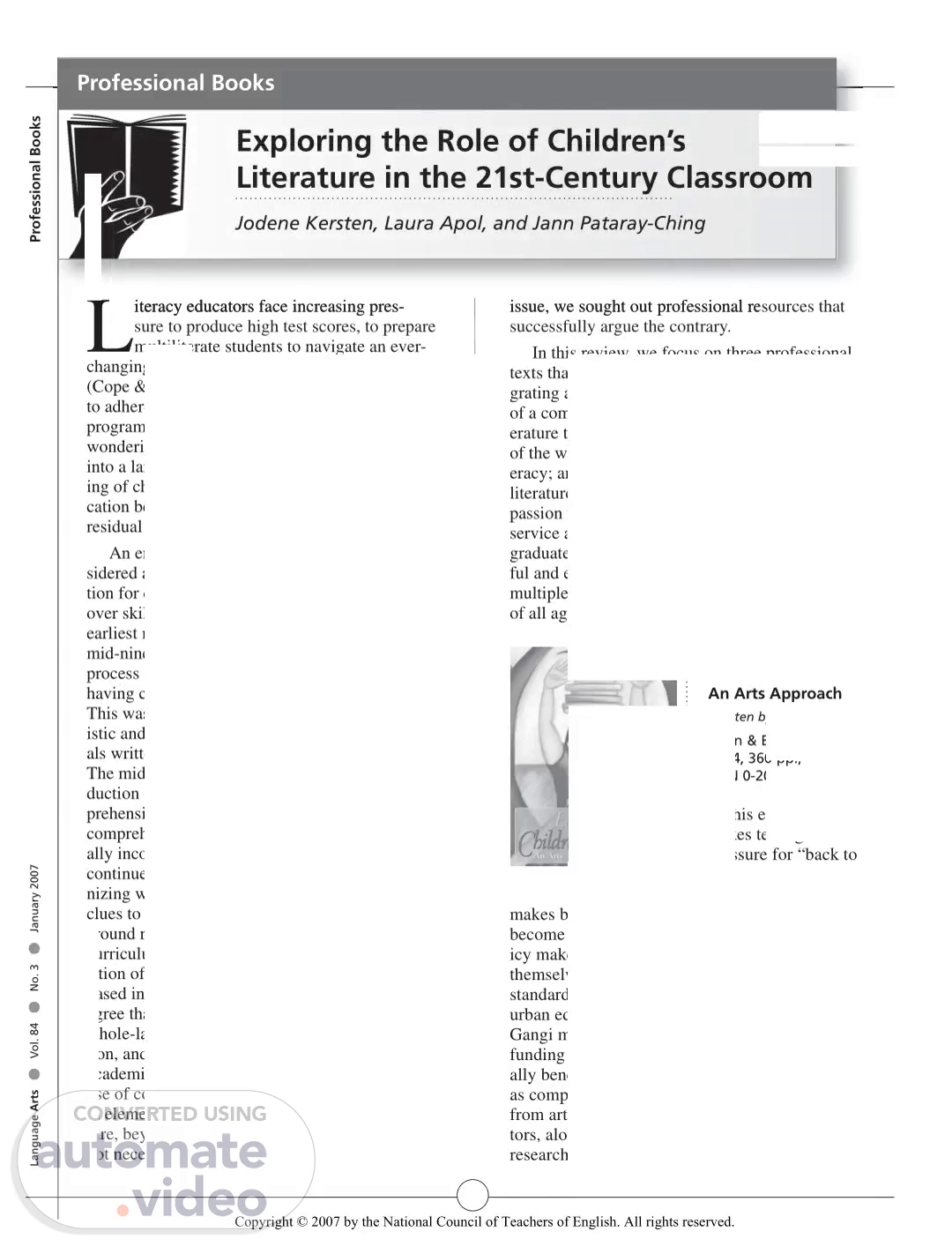Scene 1 (0s)
. . Language Arts ● Vol. 84 ● No. 3 ● January 2007.
Scene 2 (1m 44s)
. . . 287. presents a compelling argument for considering an arts approach to literature as an integral part of a literacy program..
Scene 3 (3m 37s)
. . Language Arts ● Vol. 84 ● No. 3 ● January 2007.
Scene 4 (5m 23s)
. . . 289. around the world informing other students of rainforest destruction. Students also wrote and performed a play for their school, designed the backdrop, created invitations, and produced infor- mation sheets for the play..
Scene 5 (7m 8s)
. . Language Arts ● Vol. 84 ● No. 3 ● January 2007.
Scene 6 (8m 59s)
. . . 291. He offers a compelling suggestion for how to fund libraries and make FVR an attractive possibility for more children. He states, “An article in Edu- cation Week announced that the testing required for No Child Left Behind will cost $5.3 bil- lion between 2002 and 2008” (p. 77) and invites readers to consider how the interest alone would support book purchases and staffi ng in schools serving a high-poverty population. In addition to access to literature, Krashen provides new ideas on how to make his theory a reality. Other “cures” include engaging children in read-alouds, pro- viding time and space for in-school FVR pro- grams, modeling reading for children of all ages, and directly encouraging reading. The chapter then explores literature genres and the benefi ts of comic books, teen romance literature, and mag- azines. Krashen acknowledges that these “light readings” will probably not lead to advanced lev- els of development, but studies suggest they may improve comprehension and vocabulary develop- ment and lead to more challenging and substan- tive reading. Certainly, children’s literature would be more appropriate for younger readers than the comic books, teen romances, and magazines he discusses, but the benefi ts are similar. Based on the research Krashen discusses, engaging children in pleasurable reading as part of a comprehensive language arts program promises literacy develop- ments and other positive outcomes. In the third and fi nal chapter, “Other Issues and Conclusions,” Krashen addresses questions and concerns readers may have generated while reading the research and his proposed cures. He admits that FVR cannot ensure complete acqui- sition of writing conventions such as spelling, grammar, and punctuation, so these might be addressed by direct instruction and the use of grammar handbooks and dictionaries, but not at the cost of authentic writing. He returns to pro- moting FVR, arguing that with extensive free reading, individuals will eventually acquire writ- ing conventions and develop their writing style since “writing style does not come from actual writing experience, but from reading” (p. 132). In other words, writing alone does not guarantee bet- ter writing; one also needs to do extensive reading to support and develop personal writing style. In the second half of the chapter, Krashen dis- cusses the impact of television on reading and other aspects of language, as well as on second language.
Scene 7 (10m 51s)
. . Language Arts ● Vol. 84 ● No. 3 ● January 2007.
